All Stories
-
 Particle Physics
Particle PhysicsReaders puzzled by particle physics and a papal decree
Readers had questions about neutrinoless double beta decay and the history of domesticated rabbits.
-
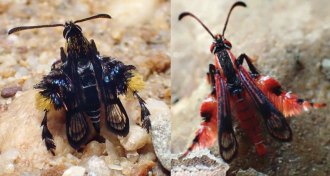 Animals
AnimalsDefenseless moths do flying impressions of scary bees and wasps
Faking that erratic bee flight or no-nonsense wasp zoom might save a moth’s life.
By Susan Milius -
 Health & Medicine
Health & MedicineSynthetic opioids involved in more deaths than prescription opioids
Winning a ghastly contest, synthetic opioids become most common drug involved in U.S. overdose deaths, bypassing prescription opioids in 2016.
-
 Animals
AnimalsHow a social lifestyle helped drive a river otter species to near extinction
A reconstruction of 20th-century hunting practices reveals why one species of Amazon river otters nearly went extinct while another persisted.
-
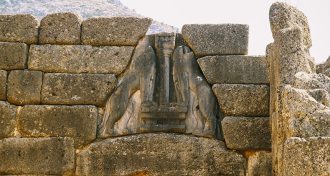 Archaeology
ArchaeologyHow a backyard pendulum saw sliced into a Bronze Age mystery
A saw no one has seen may have built Bronze Age Greek palaces.
By Bruce Bower -
 Planetary Science
Planetary ScienceLast year’s solar eclipse set off a wave in the upper atmosphere
The August 2017 solar eclipse launched a wave in the upper atmosphere that was detected from Brazil after the eclipse ended.
-
 Plants
PlantsNew genetic details may help roses come up smelling like, well, roses
A detailed genetic look at China roses and an old European species shows that there’s a built-in trade-off between color and scent.
By Susan Milius -
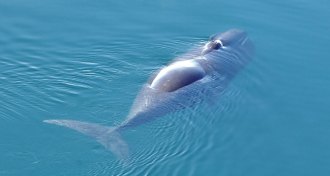 Animals
AnimalsSee (and hear) the stunning diversity of bowhead whales’ songs
Bowhead whales display a huge range in their underwater melodies, but the drivers behind this diversity remain murky.
-
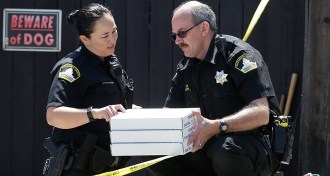 Genetics
GeneticsNew genetic sleuthing tools helped track down the Golden State Killer suspect
DNA sleuths may have adapted new techniques for identifying John and Jane Does to track down a serial killer suspect.
-
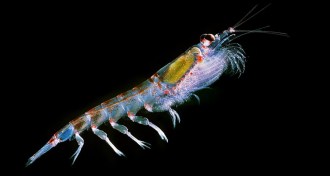 Animals
Animals‘The Curious Life of Krill’ is an ode to an underappreciated crustacean
A new book makes the case that Antarctic krill and the dangers they face deserve your attention.
-
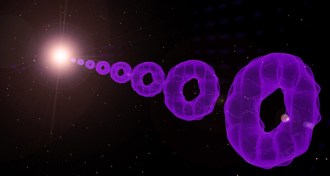 Physics
PhysicsA DIY take on the early universe may reveal cosmic secrets
A conglomerate of ultracold atoms reproduces some of the physics of the early universe.
-
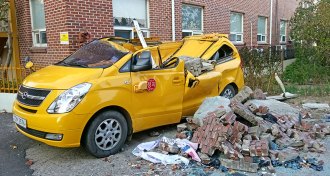 Earth
EarthPumping water underground for power may have triggered South Korean quake
A 2017 South Korean earthquake may have been caused by human activities, two new studies suggest.